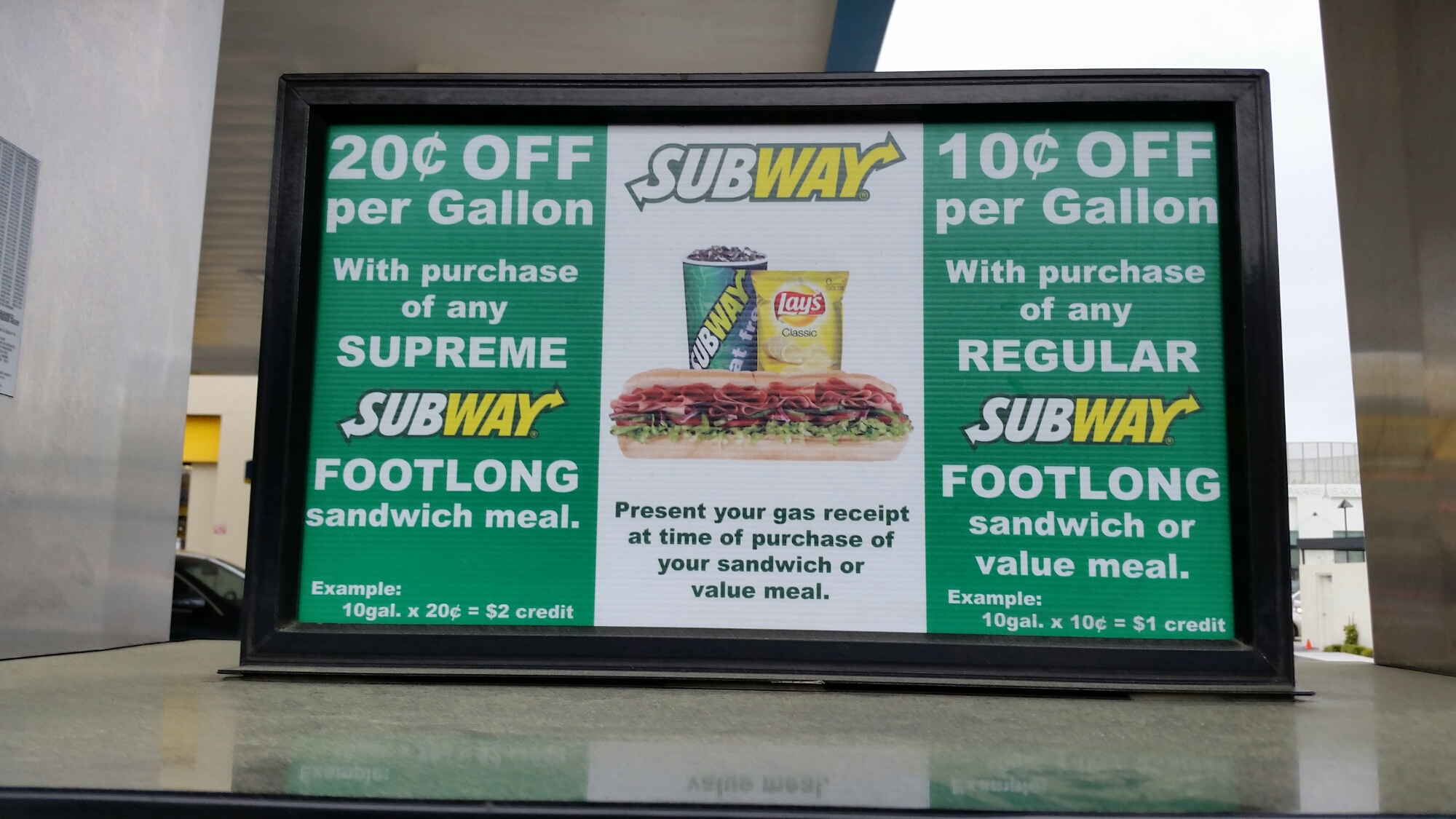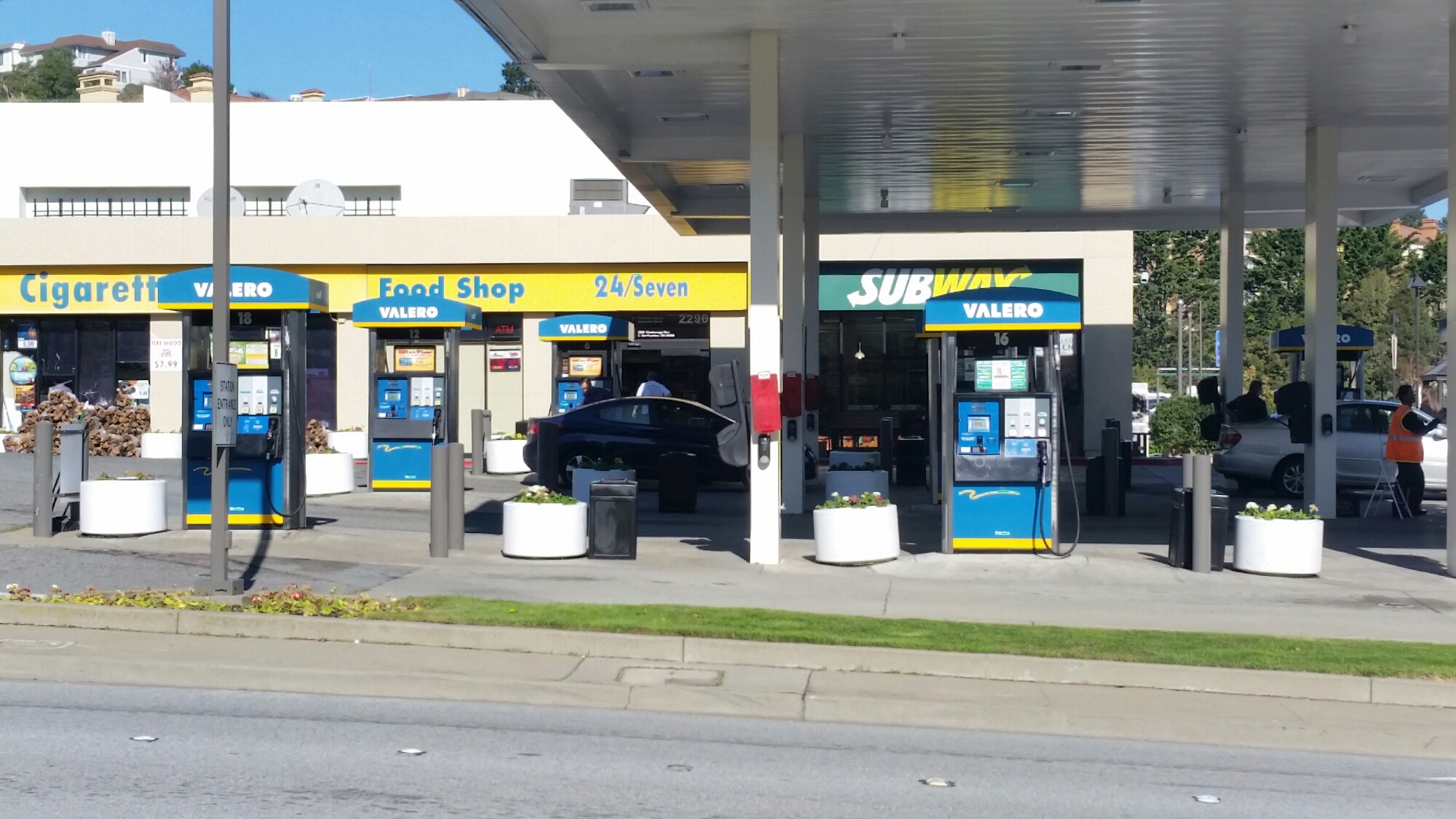I walked into the Subway at the gas station and ordered a footlong. The woman working there told me to show her my gas receipt, so she could give me a discount on my sandwich. I had pumped 12 gallons, for $32. She told me the discount was calculated from 10% of the gas price, so she took $3.20 off of my sandwich.
A few weeks later, I went back and ordered the same kind of sandwich. I presented the worker with my $34 receipt for the 12.5 gallons of gas I had pumped and she gave me $1.25 off of my sandwich. I asked her, how much was the discount? She said, it’s 10% of the gallons pumped.

When I thought about it, it actually made more sense that the discount be based off of the gallons pumped, and not what was paid for that gas. Yet, I still couldn’t help feeling cheated. Why? Simply because I had gotten a better deal my first time there. That deal became my basis for what was expected and what was right. Nevermind that what was right made less sense than what was wrong.
When we’re accustomed to getting something a certain way, it becomes how it should be, it’s what is fair. Anything that deviates from that norm in a way we perceive to be disadvantageous is suddenly unfair. What feels even more unfair is when we have to return something we have grown accustomed to receiving, following the discovery that our boon was some kind of mistake.
If we could reach into our past and see how training ourselves to see the norm as fair and right has led to heartbreak and disappointment, we’ll be able to recalibrate our fair-meter and start living a less stressed life. Because really, fair shouldn’t be determined by the norm or by personal benefit. Rather, it should be determined what is mutually acceptable or reasonable for the parties involved. Fair is reaping what you sow, fair is sometimes winning and sometimes losing, fair is every cause having an effect. For me and the gas station Subway, fair is a sandwich discount based on the gallons pumped.
สั่งแซนด์วิชที่ร้านซับเวย์ที่พัมพ์น้ำมัน พนักงานบอกให้เราเอา ใบเสร็จจากการเติมน้ำมันไปให้เขาดูเพื่อที่จะได้ส่วนลด เราเติมน้ำมันไป 12 แกลลอน หมดไป $32 พนักงานก็บอกว่าจะลดให้ 10% โดยใช้ราคาน้ำมันเป็นฐาน คือลดราคาแซนด์วิชไป $3.20
สองอาทิตย์ผ่านไป ก็กลับไปซื้อแซนด์วิชแบบเดิมอีก เอาใบเสร็จ $34 ที่เติมน้ำมันไป 12.5 แกลลอนไปให้เขาดู เขาลดราคาแซนด์วิชให้ $1.25 เราถามเขาว่า ลดเท่าไหร่นะ เขาบอกว่า ลดไป 10% โดยใช้จำนวนแกลลอนเป็นฐาน
พอมาคิดดูแล้ว การใช้จำนวนแกลลอนเป็นฐานน่าจะใช่ น่าจะถูกต้อง แต่ยังอดไม่ได้ที่จะรู้สึกไม่สบายใจนิดนิด เพราะคราวก่อนพนักงานอีกคนเขาลดราคาให้มากกว่านั้น เราพอใจกับแบบนั้นมากกว่า ก็เลยเอาวันแรกมาเป็นฐาน มาเป็นสิ่งที่ถูกต้องในสายตาของเรา
พอเราเคยชินกับอะไรสักอย่าง เราก็จะคิดว่ามันควรเป็นแบบนั้นทุกครั้ง ต้องเป็นแบบนั้นตลอดไป ถูกต้องแล้ว อะไรที่เกิดขึ้นที่ผิดเพี้ยนไปจากนั้น หรือที่เราเสียเปรียบ ก็ถือว่าไม่ถูก ไม่ยุติธรรม ยิ่งถ้าเคยได้อะไรมาตลอดแล้วมารู้ทีหลังว่าไม่สมควรที่จะได้รับเพราะมันเป็นการผิดพลาด แล้วจะให้เราคืนให้ ยิ่งทำใจยาก เหมือนไม่ยุติธรรมอย่างยิ่งเลย
ถ้าเรามองกลับไปในอดีต และสามารถเห็นว่าความเคยชินของเราที่เราเข้าใจว่าเป็นความถูกต้องและยุติธรรมเนี่ย มันนำความทุกข์และความผิดหวังมาให้เราแค่ไหน เราจะสามารถเปลี่ยนวิธีการตีค่าของความยุติธรรม เพราะความยุติธรรมไม่ควรวัดจากความเคยชินหรือผลประโยชน์ส่วนตัวของเรา ความยุติธรรมวัดจากสิ่งที่ทั้งสองฝ่ายสามารถยอมรับได้ ยุติธรรมคือทำอะไรก็ได้รับผลของกรรมนั้น คือมีชนะบ้าง แพ้บ้าง คือทุกเหตุมาพร้อมผล สำหรับเรากับร้านซับเวย์ ยุติธรรมก็คือ ลดราคาให้ลูกค้าตามจำนวนแกลลอน

No Comments